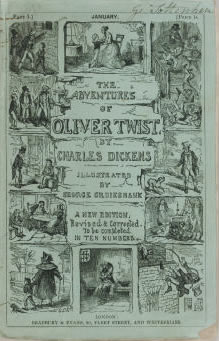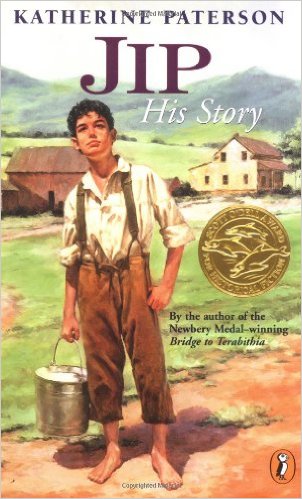| Charles Dickens’ Oliver Twist is the classic novel of mistaken identity. Originally published in monthly installments between 1837 and 1839, it tells the story of an orphan born in a workhouse in 1830s England. Oliver leaves the workhouse when he is nine years old and apprenticed to an undertaker, but runs away and finds himself in the company of a troop of pickpockets. Through a series of interwoven circumstances, the kind that only Dickens could have created, Oliver’s identity is eventually revealed, and the orphan boy goes from rags to riches and takes his rightful place in the kind of generous and loving family that every middle school child wishes he had. |
| Jip, His Story written in 1996 by the Newbery winning American novelist Katherine Paterson, focuses on another orphan, this time a 12-year-old. Set on a poor farm in Vermont during the 1850s, it tells the story of a baby who supposedly fell of a cart and was never retrieved. He is called Jip because his dark skin color made people believe he was a gypsy. Despite the hard work and difficult conditions, Jip gets along well with the other workers on the farm, many of whom are mentally ill, and he enjoys working with the farm animals. But when a man shows up and begins asking questions about Jip’s background, it becomes clear that Jip is no gypsy, and his real identity puts him in grave danger. |









